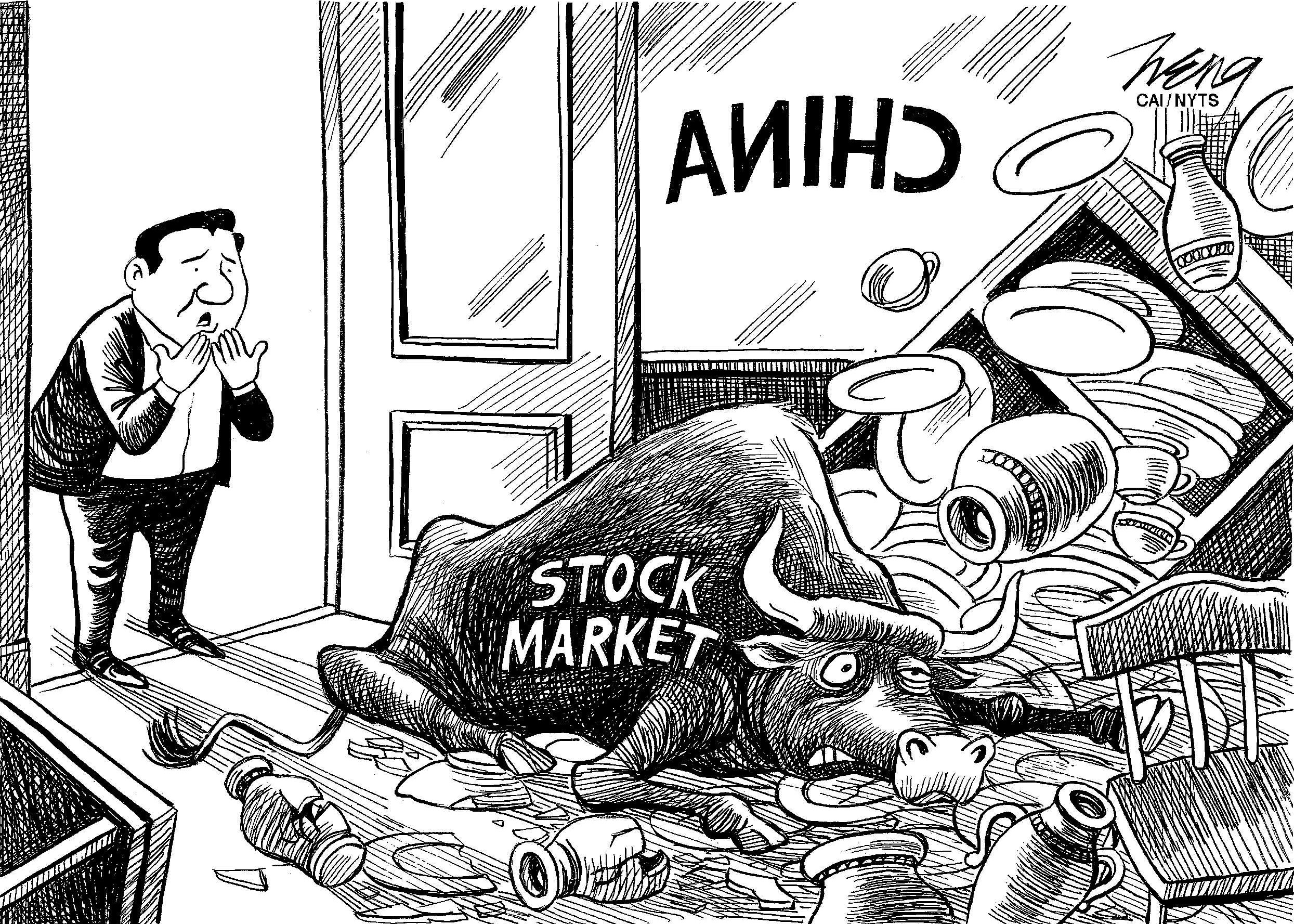China's stock market has plunged yet again, this time by 8.5 percent — the market's second-largest fall in a single day, and the largest since the global financial crisis. The roller-coaster ride is far from over. In fact, China's stock market is more like a casino than an amusement-park attraction. Retail investors account for 85 percent of trades, in contrast to other major markets, where institutional investors — with their relative abundance of information — are the biggest traders.
The result, no surprise, is an extremely volatile market, in which rumor and emotion play an outsize role in driving outcomes. And that volatility is the other reason why the casino metaphor applies: China's stock market can rise or fall by double digits without triggering a wider economic crash — at least so far. For example, China's GDP growth was unaffected (in fact, the economy was growing at nearly 10 percent) when the stock market lost half of its value between 2001 and 2005 — or, for that matter, when the market then recovered (only to fall dramatically again after the 2008 financial crisis).
Since then, China's stock market has been a global laggard — that is, until the past year, when it became the best performing in the world, rising by more than 150 percent. And yet the roller-coaster pattern continues: The 8.5 percent plunge came when the market re-opened on a Monday that followed the largest two-day rise since 2008. That rise had been preceded by a loss of nearly one-third of the market's value from mid-June to early July.



















With your current subscription plan you can comment on stories. However, before writing your first comment, please create a display name in the Profile section of your subscriber account page.